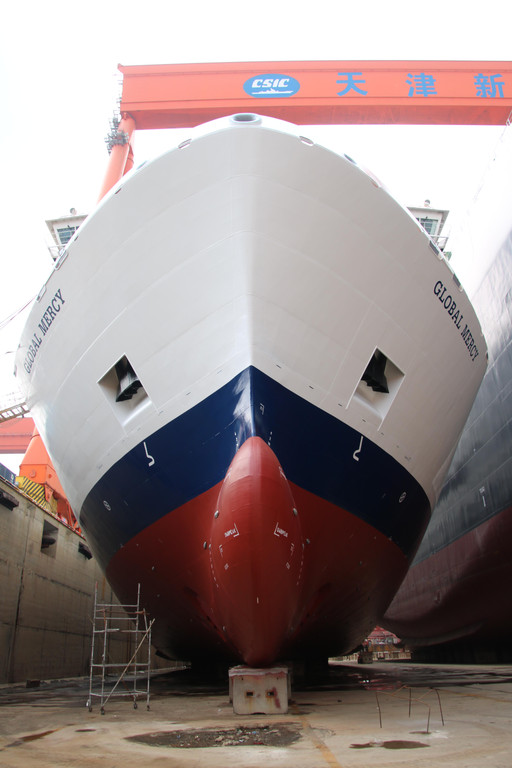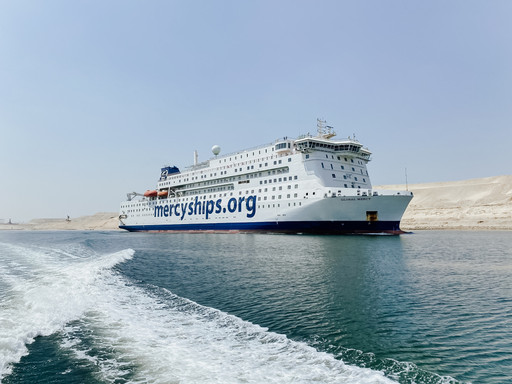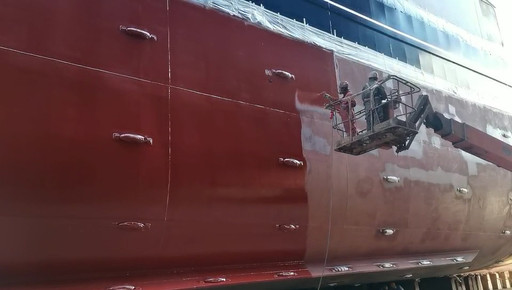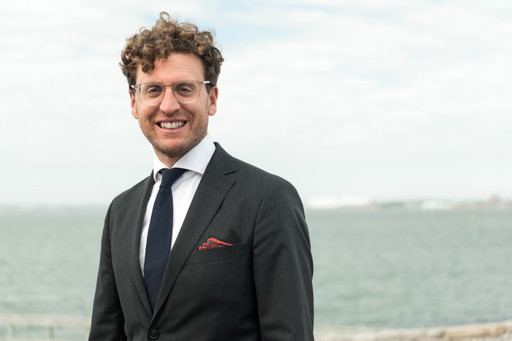Selektope® protects the world’s largest hospital ship against barnacle growth despite a combined period of almost two years idling in port at high risk of barnacle fouling.
I-Tech´s antifouling substance, Selektope® has successfully faced its toughest challenge to-date, protecting the hull and niche areas of the world’s largest non-governmental hospital ship from barnacle fouling while docked for extensive periods of time in warm waters, at high risk of fouling. Despite being stationary for 22 months, surfaces painted by the Selektope-containing antifouling coating have remained completely free from barnacles.
When the world’s largest hospital ship, Global Mercy, was constructed, the demand for a high-performing antifouling paint was crucial. When delivered, the hull had been painted with an antifouling paint containing I-Tech’s proprietary, antifouling substance Selektope, which was donated to prevent barnacle growth on the hull. As hospital ships need to stay stationary for long periods of time, the exposure to biofouling is very high, a risk that increases with high water temperatures. Since Global Mercy was launched into service, the ship has been anchored outside Senegal’s capital Dakar for most of the time, where it has delivered medical aid.
Now, after 22 months of operation, an underwater inspection shows that the surfaces treated with Selektope are completely free from barnacle growth. The uncoated underwater surfaces such as propellers and bow thrusters have, however, been affected by both hard and soft biofouling. The same applies to the surfaces of the hull where the coating surface was impaired, such as the bulbous bow and where anchor damage had occurred. The outcome was presented in connection with the international antifouling conference that I-Tech recently arranged in Gothenburg.
The results prove Selektope’s unparalleled ability to prevent barnacle growth even during the most extreme conditions. Few things offer a tougher challenge for an antifouling paint than the combination of long idling periods in hot waters
says Philip Chaabane, CEO of I-Tech AB.
Marine fouling on ships is a major sustainability problem as it leads to increased fuel consumption and an increased risk of transferring invasive marine species between marine ecosystems. For sustainability reasons as well as regulatory requirements, the need for more effective antifouling substances is expected to increase sharply in the coming decades.
//



